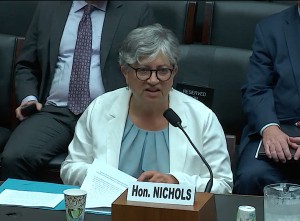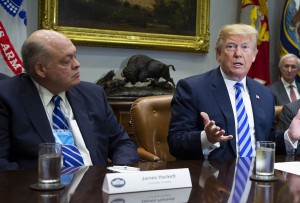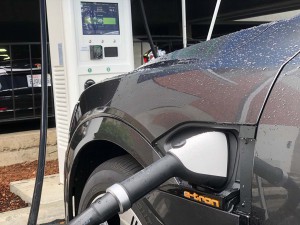
CARB’s Mary Nichols said the deal with Ford, BMW, Honda and Volkswagen should be seen as a olive branch by the Trump administration.
The California Air Resources Board and four automakers agreed to a deal that sidesteps the Trump administration’s plans to roll back fuel economy standards and force the state to fall in line with the rest of the country when it comes to those mandates.
The deal calls for Ford, Honda, Volkswagen and BMW of North America to produce more fuel-efficient vehicles for their U.S. fleets. The deal essentially nullifies the administration’s plans to roll back standards for vehicles in the U.S.
Trump also discussed eliminating California’s special exemption, which was created decades ago to help eliminate the air quality problems plaguing large cities in the state.
Despite essentially taking the knees out from under the administration’s plans, CARB officials hope they will see it as a compromise aimed at creating goodwill. Others aren’t certain it will matter.
(California Thumbs Nose at Trump on Clean Air Standard)
Mary Nichols, California’s top air pollution regulator, said in an interview Wednesday that she hopes the Trump administrating uses the deal as a blueprint for its own regulations. The deal, she said, provides automakers flexibility in meeting emissions goals without the “massive backsliding” contained in the White House proposal.

Ford CEO Jim Hackett looks on as President Donald Trump makes a point during a meeting with automakers.
“What we have here is a statement of principles intended to reach out to the federal government to move them off the track that they seem to be on and onto a more constructive track,” Nichols said. She noted the automakers came to California officials last month to hash out a possible deal.
The move by the four automakers makes sense when accounting for their desire to have predictability and the ability to reduce compliance costs.
“These terms will provide our companies much-needed regulatory certainty by allowing us to meet both federal and state requirements with a single national fleet, avoiding a patchwork of regulations while continuing to ensure meaningful greenhouse gas emissions reductions,” the group said in a joint statement.
(Automakers Push Back on Trump Plans to Relax Mileage Rules)
Under Trump, the U.S. Environmental Protection Agency and the National Highway Traffic Safety Administration plan to freeze fuel economy standards indefinitely at the current 37 mpg average for 2020 through 2026.
The Obama administration set a more aggressive target in 2012 when it pushed for a fleet average goal of 51 mpg by 2026 although th
at number could be adjusted based on the mix of vehicles an automaker sold.
Under the agreement with California, Ford, Honda, Volkswagen and BMW committed to improve their fleet averages by 3.7% each year, or slightly less than the standards set under the Obama administration.
The deal is important not only because California is the country’s largest automotive market, but also due to the fact that 13 other states use California’s standards for their own mandates. Some of the states have also opposed the Trump administration plan.
(Trump Administration Rejects Carmakers Pleas on Emissions)
NHTSA said in a statement it remains committed to its plans to ease fuel economy standards but noted that “every manufacturer is responsible for planning, designing and building as they find appropriate for their consumers, compliant with safety and other regulations.”

